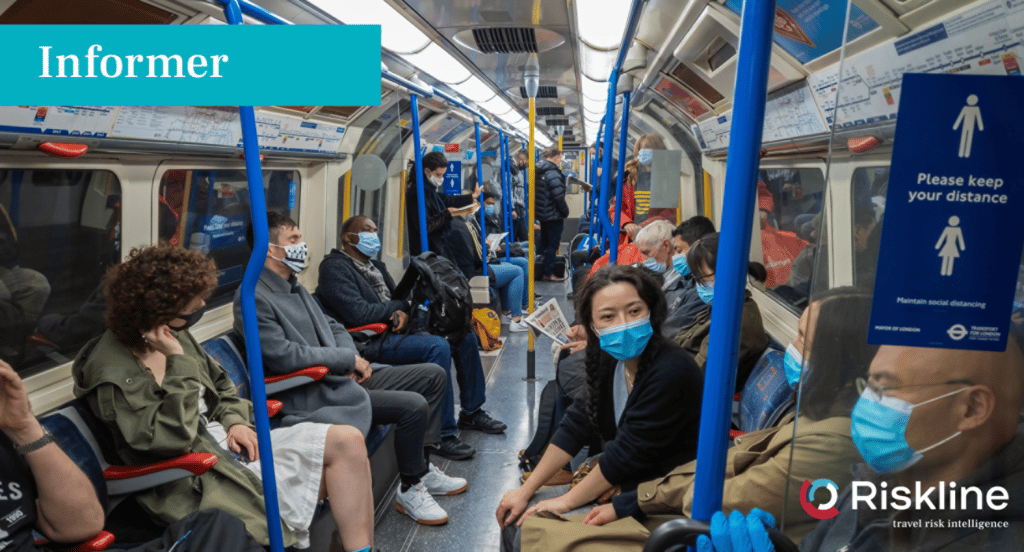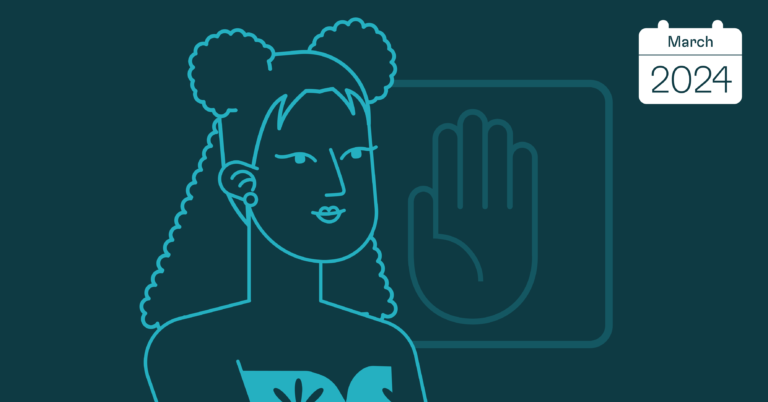By Ramya Dilipkumar
Introduction
On 26 November 2021, the World Health Organisation (WHO) confirmed the emergence of Omicron as a COVID-19 variant of concern after being notified by South African scientists, less than a year after the Delta variant took the world by storm. Within three months, Omicron was detected in more than 145 countries, and is the dominant variant in many, including the United Kingdom (UK), the United States (US), Denmark, Portugal, Australia, the Netherlands and parts of Canada, as of January 2022.
According to a Danish study, Omicron was found to be around 3.7 times more infectious than Delta among fully vaccinated individuals. However, Omicron is also proving to be much less fatal and severe than Delta. For example, in South Africa, 10,000 excess deaths were attributed to Omicron in early January, while in the previous wave of outbreak in the country, around 110,000 fatalities were attributed to Delta.
High fever and severe respiratory illness are less prevalent among most Omicron patients who are fully vaccinated with no prior illness, when compared with Delta patients. Omicron primarily attacks the upper respiratory tract rather than the lungs, as Delta does. While these characteristics have reduced the severity of illness, both this and the sheer infectiousness of Omicron means it is also more likely to affect children than Delta.
As a result of Omicron, international border restrictions, particularly pre-departure testing and quarantine measures, have been tightened globally, but not to the extent seen in 2021 during Delta variant surges. Governments in many countries with high levels of community transmission of Omicron like the US, UK, Israel, Singapore, Australia, New Zealand, France and Germany, have also avoided prolonged lockdowns as seen during the peak of the Delta variant in 2021, which paints a slightly optimistic picture for global economic recovery and travel going forward in 2022.
Future of global travel and economic recovery
While travel bans by individual countries initially targeted mostly travellers from Southern Africa in late 2021, by early 2022, these bans were reversed and border restrictions by most countries including the US, Brazil, Canada, Australia, India, Israel, United Arab Emirates (UAE), Hong Kong, European Union (EU), Kuwait, Japan and New Zealand now target a broader section of international travellers, given the global spread of Omicron.
Countries including the US, EU countries, UAE, Pakistan, Taiwan and China have expanded travel-related testing and vaccine passport mandates to try and control the spread of imported infections in the community. China, for instance, tightened testing measures in mid-January, such that travellers to the country from most other major ones, including the US, Australia, South Korea and Japan must go through at least two pre-departure tests in their respective cities of departure.
However, authorities in most countries have maintained the relaxed quarantine measures for fully vaccinated travellers that were introduced in late 2021. There are no quarantine restrictions for travellers to the US, for example. In Australia, incoming fully vaccinated travellers to New South Wales, the Australian Capital Territory, South Australia and Victoria, need to only self-isolate for 24 hours until they test negative, while this requirement has been altogether removed in Tasmania.
Omicron has certainly put a damper on international travel, with airlines such as Lufthansa and Brussels Airlines flying near-empty flights daily in Europe. The most disruptive impact of Omicron on travel has been so many transport workers getting sick all at once from and having to self-isolate until testing negative. In the US, hundreds of flights have been cancelled daily since November 2021, due to a combination of staff shortages and winter weather. In the UK and Australia, many rail lines have eliminated service outside peak hours as well due to mass sick call-outs.
Many countries like Chile, Japan, Australia and New Zealand have postponed plans to further reopen their international borders to non-essential travellers. Border restrictions and flight cancellations will continue in the near-term in countries experiencing an outbreak. However, a survey by the Global Business Travel Association indicates that 75 percent of their participants (travel managers and procurement professionals) surveyed expected their organisations’ business travel volumes to increase this year from 2021 levels.
As far as internal restrictions go, countries have accepted that living with community transmission of COVID-19 is the new normal. Vaccination is the best bet against even new variants like Omicron. Omicron driven mass outbreaks seem to be much shorter or less severe in countries with high levels of vaccination, compared with prolonged outbreaks witnessed due to Delta in 2021; recovery from Omicron among fully vaccinated people with no previously known ailments is also quicker. For instance, a month and a half after Omicron was first detected in South Africa, infections in the country peaked by late December and started reducing by early January 2022, along with hospitalisations. Cases have also started dipping in North America and Europe as of mid-January.
The most direct economic impacts of Omicron on countries’ economies are concentrated on hospitals and schools, and to a lesser extent, supply chains. Schools are again closing for extended periods and hospitals are deferring non-urgent care in North America and parts of Oceania, especially, due to the scale of the Omicron outbreak. (Goods shortages, however, are not expected to approach the same levels seen in 2020.)
Many countries including South Africa, Brazil, US, UK, Israel, Germany and New Zealand, have almost fully reopened their economies and rely on social distancing measures and COVID-19 vaccine passes implemented at most offices and commercial venues. Others like the Netherlands, India, the Philippines, Solomon Islands and Pakistan where the Delta variant is also active or vaccination rates are not high enough, have opted for shorter or localised lockdowns.
The isolation period for in-country residents who test positive and their close contacts in many countries including India, Belgium and Australia has been shortened to seven days or less from 14, which means that economic activities do not stop where vaccinated people with milder symptoms can return to work sooner. Countries globally have started bringing forward the dates for vaccine boosters, a trend which is likely to continue for a foreseeable future. Another promising development is regulatory approval for new antiviral pills doctors can fill through pharmacies to treat early-stage COVID-19 cases.
Summary
While further outbreaks triggered by new variants cannot be ruled out, countries are now better equipped to handle them thanks to increasing rates of vaccination which bring down the severity of illness and fatalities. Scientists are optimistic that COVID-19 will eventually move to the endemic stage, and until then, ad hoc border restrictions are likely to continue even as countries push forward with their economic recovery plans.
Ramya Dilipkumar is an Australia-based political and security risk analyst.















